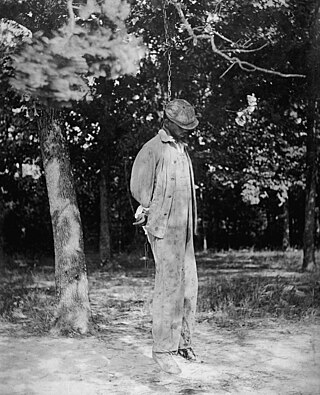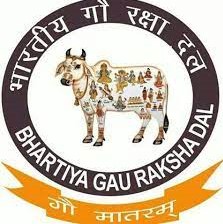Related Research Articles

The Kipsigis or Kipsigiis are a Nilotic people contingent of the Kalenjin ethnic group and speak a dialect of Kalenjin language identified by their community eponym, Kipsigis. It is observed that the Kipsigis and an aboriginal people native to Kenya known as Ogiek have a merged identity. The Kipsigis are the most numerous of the Kalenjin. The latest census population in Kenya put the Kipsigis at 1,972,000 speakers, accounting for 45% of all Kalenjin speaking people. They occupy the highlands of Kericho stretching from Timboroa to Mara River in the south, the west of Mau Escarpment in the east to Kebeneti in the west. They also occupy parts of Laikipia, Kitale, Nakuru, Narok, Trans Mara District, Eldoret and Nandi Hills.

Maasai Mara, also sometimes spelled Masai Mara and locally known simply as The Mara, is a large national game reserve in Narok, Kenya, contiguous with the Serengeti National Park in Tanzania. It is named in honour of the Maasai people, the ancestral inhabitants of the area, who migrated to the area from the Nile Basin. Their description of the area when looked at from afar: "Mara" means "spotted" in the local Maasai language, because of the short bushy trees which dot the landscape.

The Maasai are a Nilotic ethnic group inhabiting northern, central and southern Kenya and northern Tanzania, near the African Great Lakes region. The Maasai speak the Maa language, a member of the Nilotic language family that is related to the Dinka, Kalenjin and Nuer languages. Except for some elders living in rural areas, most Maasai people speak the official languages of Kenya and Tanzania, being Swahili and English.

Vigilantism is the act of preventing, investigating and punishing perceived offenses and crimes without legal authority.

Lynching is an extrajudicial killing by a group. It is most often used to characterize informal public executions by a mob in order to punish an alleged transgressor, punish a convicted transgressor, or intimidate people. It can also be an extreme form of informal group social control, and it is often conducted with the display of a public spectacle for maximum intimidation. Instances of lynchings and similar mob violence can be found in every society.
Extrajudicial punishment is a punishment for an alleged crime or offense which is carried out without legal process or supervision by a court or tribunal through a legal proceeding.

The Sukuma are a Bantu ethnic group from the southeastern African Great Lakes region. They are the largest ethnic group in Tanzania, with an estimated 10 million members or 16 percent of the country's total population. Sukuma means "north" and refers to "people of the north." The Sukuma refer to themselves as Basukuma (plural) and Nsukuma (singular).

The Nyamwezi, or Wanyamwezi, are one of the Bantu groups of East Africa. They are the second-largest ethnic group in Tanzania. The Nyamwezi people's ancestral homeland is in parts of Tabora Region, Singida Region, Shinyanga Region and Katavi Region. The term Nyamwezi is of Swahili origin, and translates as "people of the moon" or "people of the west", the latter being more meaningful to the context.
Mungiki is a banned ethnic organisation in Kenya. The name means "a united people" or "multitude" in the Kikuyu language. The religion, which apparently originated in the late 1980s, is secretive and bears some similarity to mystery religions. Specifics of their origin and doctrines are unclear. What is clear is that they favour a return to indigenous African traditions.

The Kuria people (also known as the AbaKurya, are a Bantu community in Tarime District of Mara Region in Tanzania and southern Kenya. Their homeland is bounded on the east by the Migori River and on the west by the Mara River estuary. Traditionally a pastoral and farming community, the Kuria grow maize, beans and cassava as food crops and coffee and maize as cash crops.
The Sabaot Land Defence Force (SLDF) was a guerrilla militia operating in the Mount Elgon District of Kenya since 2005. It has been accused of killing more than 600 people, and of committing a variety of atrocities including murder, torture, rape, and the theft and destruction of property. More than 66,000 people had been displaced in an 18-month period.
Social cleansing is social group-based killing that consists of the elimination of members of society who are considered "undesirable", including, but not limited to, the homeless, criminals, street children, the elderly, the poor, the weak, the sick, the needy and the disabled. This phenomenon is caused by a combination of economic and social factors, but killings are notably present in regions with high levels of poverty and disparities of wealth. Perpetrators are usually of the same community as the victims and they are often motivated by the idea that the victims are a drain on the resources of society. Efforts by national and local governments to stop these killings have been largely ineffective. The government and police forces are often involved in the killings, especially in Africa, Asia, South America.
Rates of crime in Guatemala are very high. An average of 101 murders per week were reported in 2018. The countries with the highest crime and violence rates in Central America are El Salvador and Honduras. In the 1990s Guatemala had four cities feature in Latin America's top ten cities by murder rate: Escuintla, Izabal (127), Santa Rosa Cuilapa (111) and Guatemala City (101). According to New Yorker magazine, in 2009, "fewer civilians were reported killed in the war zone of Iraq than were shot, stabbed, or beaten to death in Guatemala," and 97% of homicides "remain unsolved." Much of the violent nature of Guatemalan society stems back to a 36-year-long civil war However, not only has violence maintained its presence in the post-war context of the country following the Guatemalan Civil War, but it has extended to broader social and economic forms of violence.
The issue of human rights in Tanzania, a nation with a 2012 population of 44,928,923, is complex. In its 2013 Freedom in the World report, Freedom House declared the country "Partly Free".
Leela Hazzah is an Egyptian conservation biologist who works in Kenya and Tanzania. Hazzah grew up in Egypt, and completed her undergraduate and graduate degrees in the United States. In 2007, Hazzah founded Lion Guardians, which works to protect lions in East Africa along with the indigenous Maasai people. In 2014, Hazzah was named one of CNN's "Top ten heroes" of 2014.

The Bhartiya Gau Raksha Dal is a Hindu nationalist and right-wing federation of cattle protection movements in India affiliated with the Rashtriya Swayamsevak Sangh and a member of the Sangh Parivar. It provides guidance and support in the construction of protective shelters for cattle and is supporting cattle protection movements all over India. This organization is not affiliated with any political party, its members are all volunteers and it was founded in 2012 by Pawan Pandit.

The 2017 Alwar mob lynching was the attack and murder of Pehlu Khan, a dairy farmer from Nuh district of Haryana, allegedly by a group of 200 cow vigilantes affiliated with right-wing Hindutva groups in Behror in Alwar, Rajasthan, India on 1 April, 2017. Six others who were with Pehlu Khan were also beaten by the cow vigilantes.
Cow vigilante violence is a pattern of mob-based collective vigilante violence seen in India perpetuated "by Hindu nationalists against non-Hindus to protect cows, which is considered sacred in Hindu religion".

The Sengwer people are an indigenous community who primarily live in the Embobut forest in the western highlands of Kenya and in scattered pockets across Trans Nzoia, West Pokot and Elgeyo-Marakwet counties. The Sengwer are sometimes portrayed as a component of the Marakwet people but are a distinct ethnic grouping.
References
- 1 2 Dikgare, Mathunya (15 May 2011). "Vigilant Policing or Vigilante Policing?". City Press.
- 1 2 ""Treat Us Like Human Beings": Discrimination against Sex Workers, Sexual and Gender Minorities, and People who use Drugs in Tanzania" (PDF). Human Rights Watch. Human Rights Watch. 2013. Retrieved 19 November 2016.
- ↑ Paciotti, Brian; Hadley, Craig; Holmes, Christopher; Mulder, Monique Borgerhoff (2005). "Grass-Roots Justice in Tanzania: Cultural Evolution and Game Theory Help to Explain how a History of Cooperation Influences the Success of Social Organizations". American Scientist. 93 (1): 58–65.
- 1 2 3 Abrahams, Ray (1987). "Sunusungu: Village Vigilante Groups in Tanzania". African Affairs. 86 (343): 179–196.
- ↑ "Tanzania "Expels over 3000" Ugandans". BBC Monitoring International Reports. 14 November 2001.
- ↑ "Tanzania: Maasai pastoralists blame traditional guards for fuelling clashes". BBC. 19 December 2016.
- ↑ "Call to Lock Out Police from Business". allAfrica.com. 7 February 2012.
- 1 2 "Kenya Puts Journalist's Abuse Inquiry on Hold--Slaying of Two Men Scheduled to Testify Sets Back Rights Reform Bid". Pittsburgh Post-Gazette. 28 June 2006.
- ↑ "Kenya: Police Outlaw 18 Sects and Vigilante Groups blamed for Recent Mayhem". KTN TV. BBC Monitoring International Reports. 8 March 2007.
- ↑ "Kenyan Police Commissioner Bans Vigilante Groups over Insecurity". East African Standard. BBC. 3 March 2007.
- ↑ "Man Commits Suicide After Killing Daughter". allAfrica.com. 21 September 2010.
- ↑ "Kenyan police boss warns of re-emergence of outlawed groups". BBC Monitoring International Reports. Daily Nation. 26 February 2016.